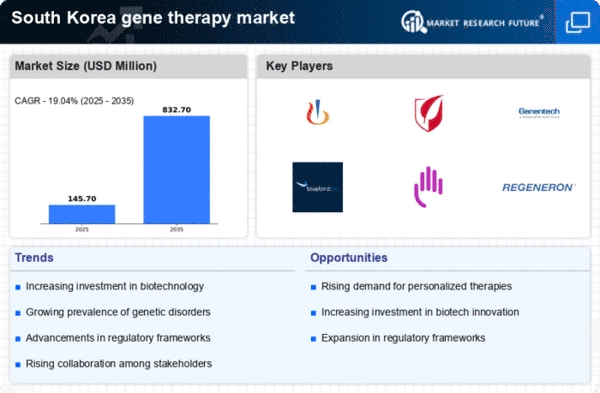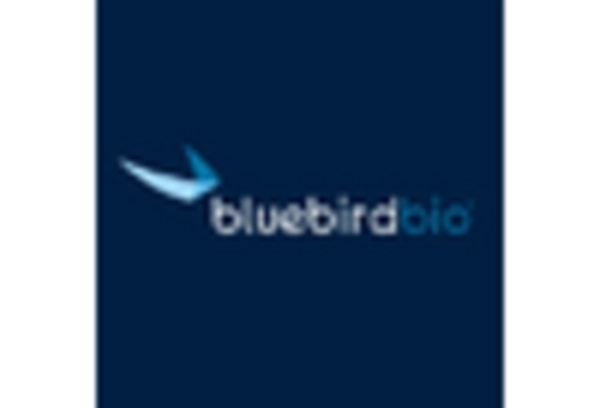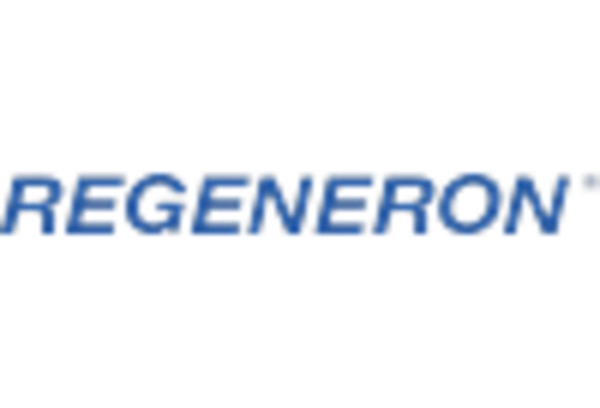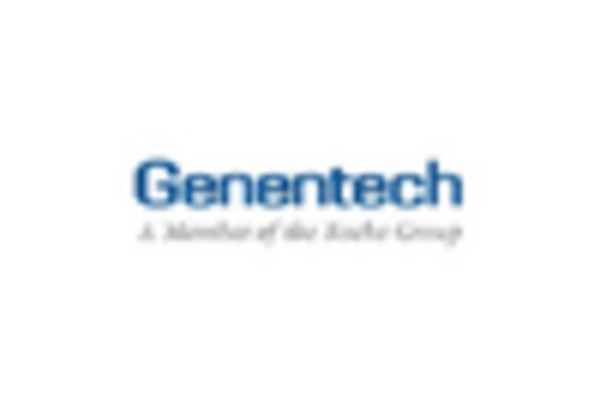Regulatory Framework Enhancements
The regulatory landscape in South Korea is evolving to support the gene therapy market. The Ministry of Food and Drug Safety (MFDS) has implemented streamlined approval processes for gene therapies, which may expedite the time to market for innovative treatments. This regulatory support is crucial, as it encourages investment in research and development, potentially leading to a surge in new therapies. In 2024, the MFDS approved several gene therapies, reflecting a growing acceptance of these treatments. The favorable regulatory environment is likely to attract both domestic and international companies, fostering a competitive market. As a result, the gene therapy market could experience accelerated growth, with projections indicating a compound annual growth rate (CAGR) of over 15% through 2028.
Rising Incidence of Rare Diseases
The incidence of rare genetic diseases is increasing in South Korea, which is driving the demand for gene therapies. As the population becomes more aware of these conditions, there is a growing recognition of the need for effective treatments. The gene therapy market is particularly well-positioned to address these unmet medical needs, as many rare diseases are caused by genetic mutations that can potentially be corrected through gene therapy. In 2025, it is estimated that approximately 1 in 10,000 individuals are affected by rare genetic disorders, highlighting the urgency for innovative solutions. This rising incidence is likely to propel the gene therapy market forward, as stakeholders seek to develop targeted therapies for these conditions.
Growing Patient Awareness and Demand
Patient awareness regarding genetic disorders and available treatments is on the rise in South Korea, which is positively influencing the gene therapy market. Educational campaigns and advocacy groups are playing a pivotal role in informing the public about genetic conditions and the potential of gene therapies. This heightened awareness is likely to lead to increased demand for innovative treatments, as patients seek out options that address their specific genetic conditions. In 2025, surveys indicate that over 60% of patients are actively seeking information about gene therapies, reflecting a shift in patient attitudes. Consequently, the gene therapy market may experience growth as healthcare providers respond to this demand by offering more gene-based treatment options.
Increased Investment in Biotechnology
Investment in biotechnology is witnessing a notable rise in South Korea, significantly impacting the gene therapy market. Venture capital funding for biotech firms has surged, with estimates suggesting an increase of approximately 30% in 2025 compared to previous years. This influx of capital is facilitating the development of innovative gene therapies, as companies are able to allocate resources towards research and clinical trials. Furthermore, government initiatives aimed at fostering biotech innovation are likely to enhance the attractiveness of the sector. As a result, the gene therapy market is poised for expansion, with a projected market value reaching $1 billion by 2027, driven by increased investment and innovation.
Collaborations Between Academia and Industry
Collaborative efforts between academic institutions and biotech companies are becoming increasingly prevalent in South Korea, significantly impacting the gene therapy market. These partnerships facilitate the exchange of knowledge and resources, leading to accelerated research and development of novel therapies. Universities are often at the forefront of genetic research, and their collaboration with industry players can enhance the translation of scientific discoveries into clinical applications. In 2025, several high-profile collaborations have been announced, indicating a trend towards synergistic efforts in the gene therapy space. This collaborative environment is likely to foster innovation, potentially resulting in a more robust pipeline of gene therapies entering the market.
















